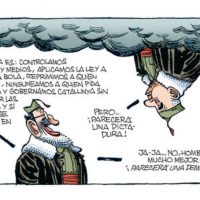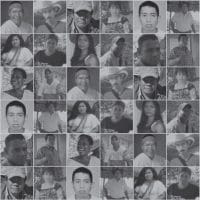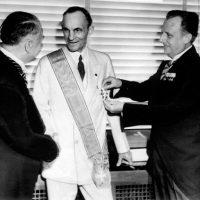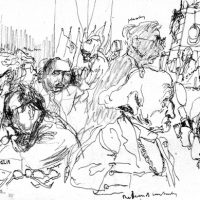-
‘Leftist’ PM hails Trump in hopes to bind Greece to U.S. imperialism
The meeting was seen by many in the Greek left as an “unprecedented manifestation of subordination to the U.S. imperialists,” who backed violent Greek monarchists and military juntas throughout the Cold War.
-
Imperialism is suffocating India
More than a month ago we published an article detailing some of the fallout of the ecological crisis in the Third World. The article detailed a study published by “greenpeace” that had shown figures projecting 1.2 million deaths in India every year due to air pollution-related conditions.
-
The Indonesia Genocide (1965-66): Evidence of active support of the slaughter by the U.S.
The files document a time when tensions between the Indonesian army and the Indonesian Communist Party boiled over, resulting in an almighty ‘purging’ that killed hundreds of thousands of its citizens.
-
Big day for Rajoy’s decision on taking over Catalonia
A conversation between Mariano Rajoy & Francisco Franco
-
In defense of old materialism
There was only once, in the final year of my PhD, that my supervisor and I butted heads. I had just submitted my fourth chapter for her review and, because I was living in another city at the time, she sent me an email saying we needed to speak on the phone urgently.
-
Radicalizing women’s rights internationally
The recent “burqa bans” in Austria and Quebec appear to be troubling legal manifestations of the rising tide of Islamaphobia in Europe and North America.
-
Iran doesn’t have a nuclear weapons program
When it comes to Iran, do basic facts matter? Evidently not, since dozens and dozens of journalists keep casually reporting that Iran has a “nuclear weapons program” when it does not—a problem FAIR has reported on over the years (e.g., 9/9/15).
-
Why read “Capital”, 150 years later?
Out of all his works, the reputation of Karl Marx as theorist of the socialist tradition is undoubtedly based primarily on his magnum opus, Capital: A Critique of Political Economy.
-
Mao reconsidered
“The simple facts of Mao’s career seem incredible.… Indeed Mao’s achievement is almost beyond our comprehension.” – John King Fairbank, The United States and China.
-
Spanish state to Catalonia: “Surrender or we’ll take you over”
Catalonia’s Premier Carles Puigdemont officially declared an independent Catalan republic on October 10, only to announce the immediate suspension of independence to allow for negotiations with the conservative Spanish People’s Party (PP) government of Prime Minister Mariano Rajoy. The declaration of independence formalised the result of the October 1 referendum held under extreme police repression: in it 90% of those voting (43% of the electorate) said ‘Yes’ to independence.
-
The crisis in Puerto Rico is a racial issue, here’s why
Last week, CNN’s Jake Tapper interviewed Sen. Bernie Sanders (I-Vt.) and asked if he thought President Donald Trump’s punishing response to hurricane-ravaged Puerto Rico had something to do with “race or ethnicity.” Sanders hesitated a bit but ultimately said, “We have a right to be suspect.”
-
Massive demonstration shuts down the Nazis
On 30 September, a unified chant could be heard from Göteborg’s Korsvägen: “no Nazis on our streets!” Around 20,000 protesters congregated to oppose the fascist sect NMR, who were staging a demonstration to flex their muscles. By the end of the day, the anti-fascist movement stopped the NMR’s demonstration in Göteborg and even the fascists complained publicly that the day was a “victory for [their] opponents”.
-
Evo Morales homages Che Guevara
Last October 8, 50 years after the murder of Che Guevara, thousands of people who vindicate his legacy of struggle arrived in La Higuera, Vallegrande, where the Argentine-Cuban guerrilla was captured and later assassinated.
-
Che Guevara stamp sells out first run in ‘unprecedented’ public demand
THE Che Guevara stamp produced by An Post to mark the 50th anniversary of the Latin American freedom fighter’s murder on 9 October 1967 by CIA-backed Bolivian state forces has sold out its initial 120,000 print run.
-
Capitalism’s moral maze
Life as a consumer is very different to what we’re told.
-
Criminalizing environmental activism
Berta Cáceres, assassinated in her home on March 3, 2016, was just one of hundreds of Latin American environmental activists attacked in recent years. At least 577 environmental human rights defenders (EHRDs) were killed in Latin America between 2010 and 2015—more than in any other region—as documented by Global Witness.
-
How American racism shaped nazism
Depending on the reader’s perspective, Whitman’s central argument seems either modest or bold, as he claims, “What all this research unmistakably reveals is that the Nazis did find precedents and parallels and inspirations in the United States” (10). The most radical Nazis were often the most enthused about American legal precedents. More moderate, less anti-Semitic members of the Nazi Party tended to be more skeptical of American approaches. For some Nazis, “American race law looked too racist” (5). America “was the leading racist jurisdiction” in the 1930s (138).
-
Henry Ford’s dirty history
Donald Trump’s reluctance to denounce neo-Nazis marching on the streets of the US has shocked many people. But there is a long history of US businessmen flirting with fascism, writes John Newsinger.
-
Red scientist: two strands from a life in three colours
An exploration of Bernal’s contribution to the politicization of science and scientists, above all the development of the Social Relations of Science movement.
-
Marx’s Capital at 150: an invitation to history
Radhika Desai says Capital by Karl Marx is still an essential read on the 150th anniversary of its publication.




















